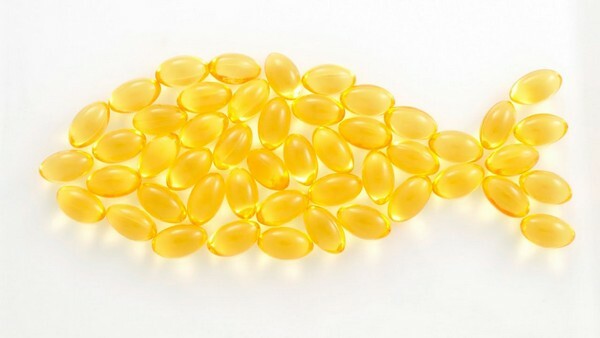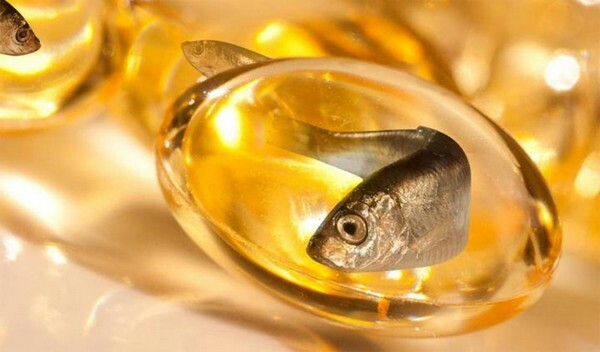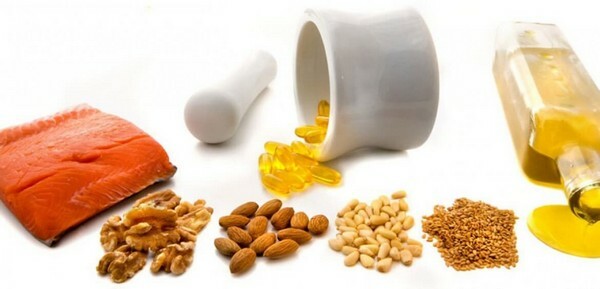Contents:
- Fish oil components
- Caloric value, energy value
- Vitamins
- Sterols
- Fatty acids
Fish oil has been a well-known food additive for many years. The peak popularity of the product fell on the 40-50 years of the twentieth century. Then, according to scientific research, began to massively give fish oil in kindergartens, schools, sanatoria and rest camps. Fish oil, the composition of which contains many vitamins and nutrients, refers to foods that are also rich in fatty acids. Thanks to this property, the food additive is very popular these days. Especially in pharmacies you can buy capsules with fish oil, which can be taken neither by adults nor children.

Fish oil components
The product is extracted from large marine fish. The most common for production are herring, mackerel, cod. There are two types of fat - purified and unpurified. Purified fat is a thick liquid of light yellow color, without macroscopic impurities. Purified raw materials are used in medicine, cosmetology. Unrefined fat is the primary product that has not been filtered and cleaned of harmful impurities. Using such a product you can suffer from poisoning and in an easy case from a digestive disorder.
Many people often consume unrefined fish oil, referring to the fact that there are the most useful components. There is some truth in this, since along with the purification, the product can also be diluted to produce more raw material. This also reduces the cost of food additives. But in order not to run into a substandard drug, it is enough to read the instructions to it, in particular, the composition.
Important! The daily dose necessary for a normal life is 1 gram of polyunsaturated fatty acids.
If the necessary components are not enough in one capsule, then in order to obtain the desired concentration of the substance in the body, the consumed dosage should be increased. In order not to make a mistake with the purchase, it is best to study the composition before buying.

Only a diverse composition of fish oil is so appreciated by doctors and nutritionists. If it were not for the good, then nobody would use the product, since the taste and smell are very specific and even unpleasant. What does fish oil contain? The composition has long been studied by scientists and is not a secret to anyone:
- Vitamins:
- Vitamin A;
- Vitamin D;
- Vitamin R.
- Sterols:
- Cholesterol.
- Fatty acids:
- Polyunsaturated;
- Monounsaturated;
- Saturated.
Its use of cod liver oil is due to a large number of polyunsaturated fatty acids and vitamins A and D. As such, microelements and other vitamin in the product is not found.
Caloric value, energy value
Fish oil, the calorie content of which is very high, contains a small variety of components. Of the three main nutrients, the product contains the actual fats and a small amount of proteins. There are no carbohydrates at all. The ratio of all components is as follows: 2% of daily protein, 122% fat and 0% carbohydrate. Summarizing, then, we can say that 100 grams of fish oil covers 40% of the daily norm in energy.
Therefore, before you start taking a dietary supplement, you should carefully examine your diet and strictly determine the dosage of fish oil. The calorie content in 100 grams is 804 kcal, which in terms of kJ will be 3367.
In terms of the packaged product, one capsule contains approximately 0.3 grams of fat. The composition of fish oil in capsules corresponds to 2. 4 kcal and 10 kJ of energy value.

On average, an adult needs 2-4 capsules of fish oil a day. Even in such a dosage the calorific value will be only 5-9 kcal. The benefit of polyunsaturated fatty acids and vitamin will be indispensable for the whole body, especially those people who are exposed to heavy physical stress, pregnant women, children, workers with mental stress.
Vitamins
What are the vitamins in fish oil? In fish oil contains only two vitamins, but in such quantity, in which nowhere else are found. In 100 grams of the product, vitamins A and D are in the following concentrations:
- Vitamin A - 30 mg;
- Vitamin D - 0.004 mg.
Vitamin A
Takes part in redox processes in the body. He also corrects protein metabolism, the functioning of cellular structures, takes part in the development of teeth and bones. Among other things, it affects the function of vision and has a rejuvenating effect. Retinol is the second name of vitamin A, it is vital for the regulation of immunity, as it has the ability to increase the barrier function of mucous membranes. This is a very important property, since the mucous membranes are the main gateway on the pathway to infection, and if their barrier function is weakened, infection occurs much faster and more often.
Vitamin A is involved in the regeneration of epithelial tissue, in particular, the skin. By increasing the immune defense of the skin and improving its renewal, retinol helps many to get rid of acne.
Retinol improves twilight vision and is the only way to combat "night blindness" - bad twilight vision.
The antioxidant capacity of vitamin A is manifested in the form of preventing the growth and development of cancerous tumors.
The daily requirement for vitamin A for an adult is 900 μg on average. It can be said that the consumption of fish oil completely covers the daily requirement for vitamin A in adults and children, and at the same time it leads to the restoration of protective forces, skin and eye health.
Vitamin D
It is produced by the action of ultraviolet radiation in the skin. But it can also be obtained with food. Is there vitamin D in fish oil? Yes, the amount of vitamin that is contained in it, almost everything is absorbed, since calciferol refers to fat-soluble compounds.
The benefits of this dietary supplement is that vitamin D preserves the youth and the health of the bone and muscle system, teeth. Very useful vitamin for pregnant women, because thanks to calciferol, the future immunity in the embryo is forming.
In adults, vitamin prevents osteoporosis - increased brittleness of bones due to a decrease in calcium in them. The influence of vitamin on the nervous system is also proved. Its deficiency causes a depressive state.
Fish oil intake is very useful for children, as, among other things, the prevention of rickets due to the receipt of the necessary amount of calciferol in the body.
The daily requirement is 15 μg of vitamin in adults and children. Receiving fish oil in capsules is especially useful in winter, when the production of your own vitamin D is slowed down.
Sterols
The sterols that are contained in fish oil include cholesterol. Despite the fact that recently, cholesterol is usually blamed for all vascular diseases of a person, it also has many useful properties, without which none of us could live.
Cholesterol takes part in the synthesis of many useful biologically active substances:
- It is from cholesterol that vitamin D synthesis occurs in the skin;
- All steroid hormones are produced from cholesterol;
- Bile acids, which are involved in digestion, particularly in the emulsification of fats in the intestines, are also synthesized from cholesterol.
Steroid hormones include hormones of the adrenal glands - cortisol, aldosterone, sex hormones - progesterone, estrogens, androgens. Of course, looking at the physiological significance of cholesterol for the body, it becomes clear that the substance is synthesized in large quantities by the body itself. Only a small fraction of the cholesterol comes from outside with food, in particular, with fish oil.
Important! Do not be afraid that the use of fish fat will develop atherosclerosis or increase cholesterol. First, in the capsules of food additives very little cholesterol. Secondly, harm is not brought to the body by the substance itself, but by its carriers. Especially in the food additive from fish contain fatty acids, which contribute to the prevention of atherosclerosis.
Taking into account these facts, it can be argued that fish oil is not dangerous even for those who already have atherosclerosis.
Fatty acids
The largest mass fraction in fish oil is fatty acids.70% of the mass fraction is monounsaturated fatty acid - oleic acid. It belongs to omega-9 unsaturated fatty acids. The use of this substance consists of several properties:
- Reduces the formation of low and very low density lipoproteins, thereby preventing the formation of atherosclerosis;
- Prevention of oncological pathology;
- Prevention of problems with hair, skin, nails.
In second place after oleic acid is palmitic acid. It is contained in an amount of 25% of the total mass. It is a monounsaturated fatty acid. It is also found in high amounts in breast milk. This is due to the fact that palmitic acid is useful for a growing organism, and in adults it usually accumulates in adipose tissue. But since there is a small amount of fish oil in fish oil, there is nothing to be afraid of.
Omega-6
Linoleic acid is present in an amount of 2% of the total mass. It refers to omega-6.Its significance lies in the fact that it is part of the cell membranes and is necessary for their normal functioning.
Arachidonic acid is also an omega-6 unsaturated acid. In fish oil is 3% of this acid. Arachidonic acid is a part of the membranes of hepatic cells - hepatocytes, thereby supporting their stability and vital activity. Arachidonic acid also affects the functioning of the nervous system.
Omega-3
The representative polyunsaturated acid of omega-3 is eicosapentaenoic acid( EPA).In fish oil, it is 10%.Omega-3 acid has the following effects:
- leads to rejuvenation, skin cleansing;
- Normalizes the work of cardiovascular, musculoskeletal, nervous systems;
- Increases the body's resistance to infections by enhancing immunity;
- Affects the reproductive function of men and women.

The second omega-3 acid is docosahexaenoic( DHA).Its in fat is 15%.It is extremely important during pregnancy for the normal development of the embryo and fetus, as it affects the formation of the central nervous system of the unborn child. Also during breastfeeding, the mother transmits this acid with milk.
For adults, DHA is important for several reasons:
- Included in the gray matter of the brain;
- It is found in the retina, testes, in spermatozoa;
- Brings back the neuro-psychic state of a person, removes a depressive-suicidal mood.
Based on all the information on the effectiveness of fish oil, we can conclude that it will be useful for children, pregnant women, adults and people in old age.
